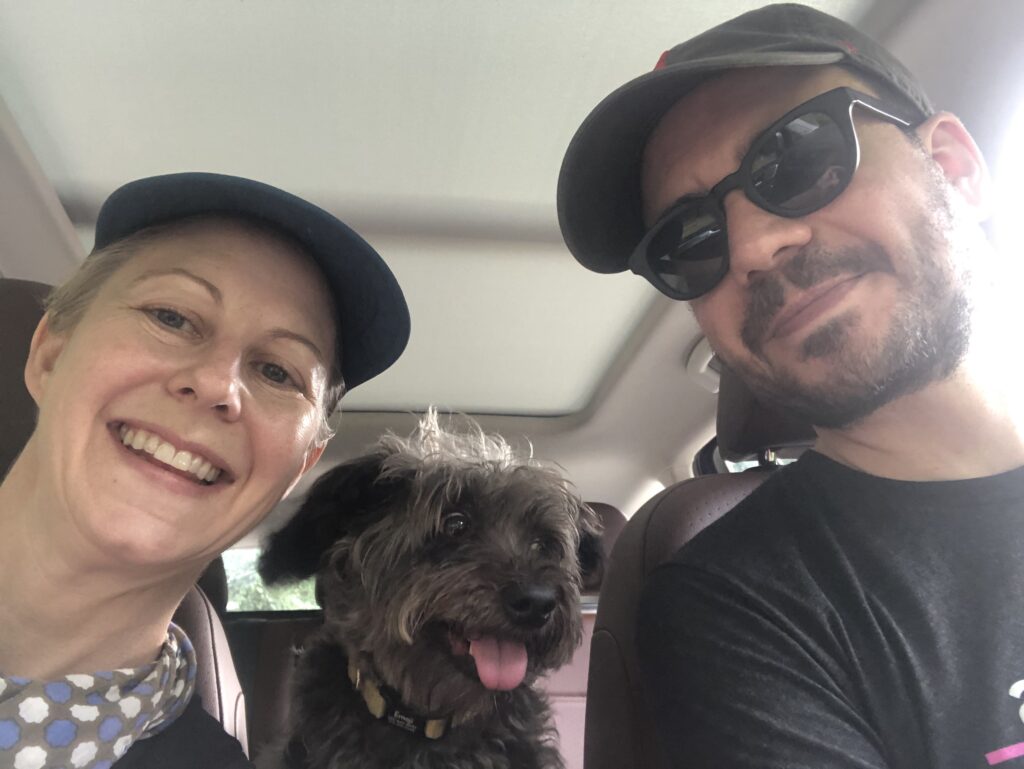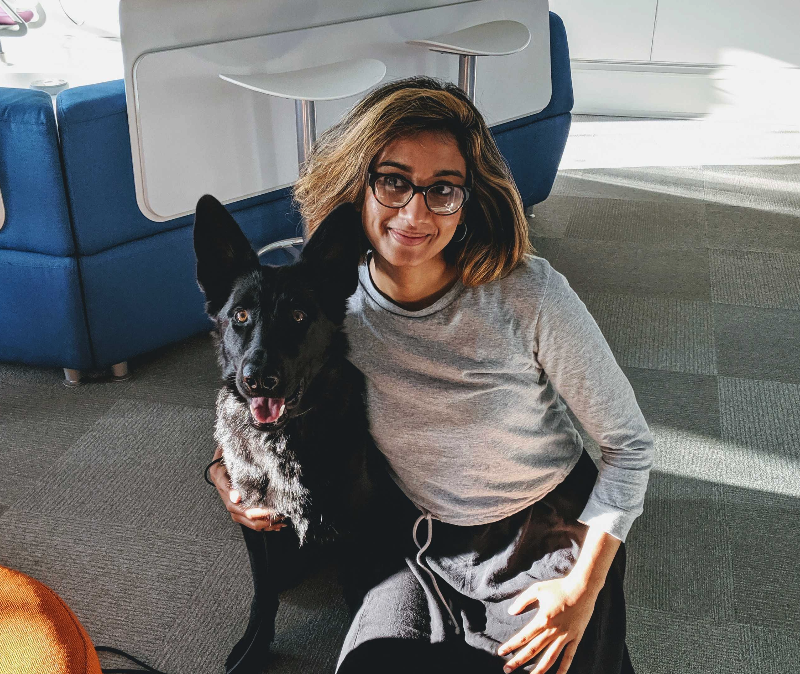Seminar One has been a part of the Master of Design in Interactions program at CMU for more than two decades. Its formal title is “Interaction and Service Design Concepts,” and its purpose is to challenge what we think and expect of design, and of ourselves as designers and design leaders. As you learn and practice the craft of design in your time here (and beyond!), Seminar One is a place to take on the stakes of design.
This year, the stakes are higher than they have ever been: a pandemic, an election, a racial justice movement, shootings and killings of Black people, a reckoning about race with international reverberations. These are questions for us to take on as we look at the role of designers. We can have a bigger impact than ever before, and in Seminar One we will look at that impact, and find safe space to have that conversation together. You’ll see some guidelines and philosophies to follow as we explore together a bit further down this page.
Your professor

I’m Molly Wright Steenson and this is my sixth year at Carnegie Mellon. I live in Pittsburgh with my husband Simon (MDes ’07) and our dog Emoji. I wear a lot of hats at CMU: I’m the Senior Associate Dean for Research in the College of Fine Arts and am K&L Gates Associate Professor of Ethics & Computational Technologies. I’m fascinated with the history of technology, from pneumatic tubes to artificial intelligence, and am the author of Architectural Intelligence: How Designers and Architects Created the Digital Landscape and the co-editor of Bauhaus Futures (both MIT Press).
My career goes back more than 25 years to the very beginning of the Web and the field of UX and interaction design, working at a number of tech companies and consultancies. I’ve taught since 2003, as a professor at the Interaction Design Institute Ivrea in Italy, an adjunct at Art Center College of Design in Pasadena, and at the University of Wisconsin-Madison in the School of Journalism & Mass Communication. I have a PhD in architecture from Princeton University.
Outside of school, I write essays and creative nonfiction, weave (a new hobby), knit, sew, run, hike, cook—and hang out with Simon and Emoji. The picture at right is coming home after a hike on a hot day.
Your TA

I am Nandini Nair (a.k.a Nanz), a second-year masters student at the School of Design at Carnegie Mellon. I’ve been a designer in New Zealand for several years doing branding, web, UX, product design for social enterprises, community groups, non-profits. Most of my work has been centred around using design to enable or amplify the social or environmental impact goals for these organization.
I feel most alive when I’m in nature and with animals. This me on the right at the grad studio with a fellow studiomate’s beautiful German Shepherd “Fern”.
Shine theory
Many of us come to grad school for skills or a pathway to a career, but we leave with friends and colleagues who you will know for life. Support these friendships. If you’re competitive, bring your competitive impulse to the better, greater good. Collaborate. Choose to be vulnerable and share what’s at stake, and listen to what someone tells you in return. Help the people around you shine.

“I don’t shine if you don’t shine.”
“Shine Theory is a practice of mutual investment in each other… an investment, over the long term, in helping someone be their best self — and relying on their help in return. It is a conscious decision to bring your full self to your friendships, and to not let insecurity or envy ravage them. Shine Theory is a commitment to asking, “Would we be better as collaborators than as competitors?” The answer is almost always yes.”
—Aminatou Sow & Ann Friedman
Guidelines for respectful communication
From the Gay-Straight Alliance and similar guidelines for respectful discussions:
- Step up, step back: If you’re someone who talks frequently in class, make room for others. If you’re someone who doesn’t usually speak up, speak up—your perspective matters.
- Use “I” statements. Speak from your own personal perspective.
- Listen actively. Can you summarize what’s been said before as you contribute to conversation?
- WAIT (Why am I talking?): since time our time together is limited, before speaking, think of what you’re adding to discussion– are there other ways you might share if you’ve been speaking frequently (chat, discussion forum, etc.)?
- No assumptions—except for best intentions
- Lean into discomfort
- Oops, ouch: We all will make mistakes. When you do, acknowledge it. I’ll do the same.
Take care of yourself
Remember that we — your professors and your classmates alike — want you to succeed and thrive. That’s especially true now, given the coronavirus pandemic. We and the people we love are all under more stress than ever before.
Please take care of yourself. Grad school is intense and can make emotions more vivid. Stress is real. Emotions are real. Depression is real. The effects of the changing seasons are real, especially if you’ve not lived somewhere that gets dark or snowy.
Some things to remember:
- Getting enough sleep is important. It can be hard to come by when you’re under a lot of pressure, but it’s one of the best things that can help to protect you when you’re feeling like you’re under stress.
- Move your body and get exercise. Walking, running, and biking in this city are a pleasure and even on campus, you can find some lovely places for greenery and reflection.
- Eat well. Make sure you have access to healthy snacks at school and take time for meals.
- Engage mindfulness practices like breathing and yoga. CMU offers a mindfulness room that offers meditation sittings. There are yoga classes at school, around Pittsburgh, and online. CMU offers a free Headspace account.
- Alcohol is a depressant and it’s easy to build up a tolerance to it. It will also mess up your sleep. Take care around your use of it and other recreational drugs.
- Make time to relax. Grad school can absorb you 24/7 if you let it. Remember the things and people who are outside the studio world and engage with them.
- Get off Zoom.
If you are struggling or feeling down, please know that you are not alone. All of us benefit from support during times of struggle. There are many helpful resources available on campus and asking for support sooner rather than later is often helpful.
If you or anyone you know experiences any academic stress, difficult life events, or feelings like anxiety or depression, we strongly encourage you to seek support. Counseling and Psychological Services (CaPS) is here to help: call 412–268–2922 and visit their website at http://www.cmu.edu/counseling/. Consider reaching out to a friend, faculty or family member you trust to get connected to the support that can help. Again, you’re not alone.